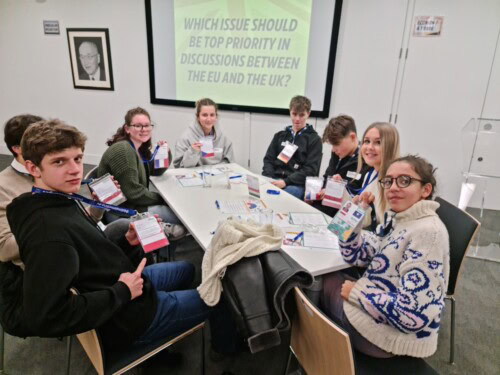From the EU to NATO: Politics Students Tackle Global Issues
Politics students debated trade, human rights, and migration issues at Europe House and attended a fascinating talk on the role NATO plays and its future.
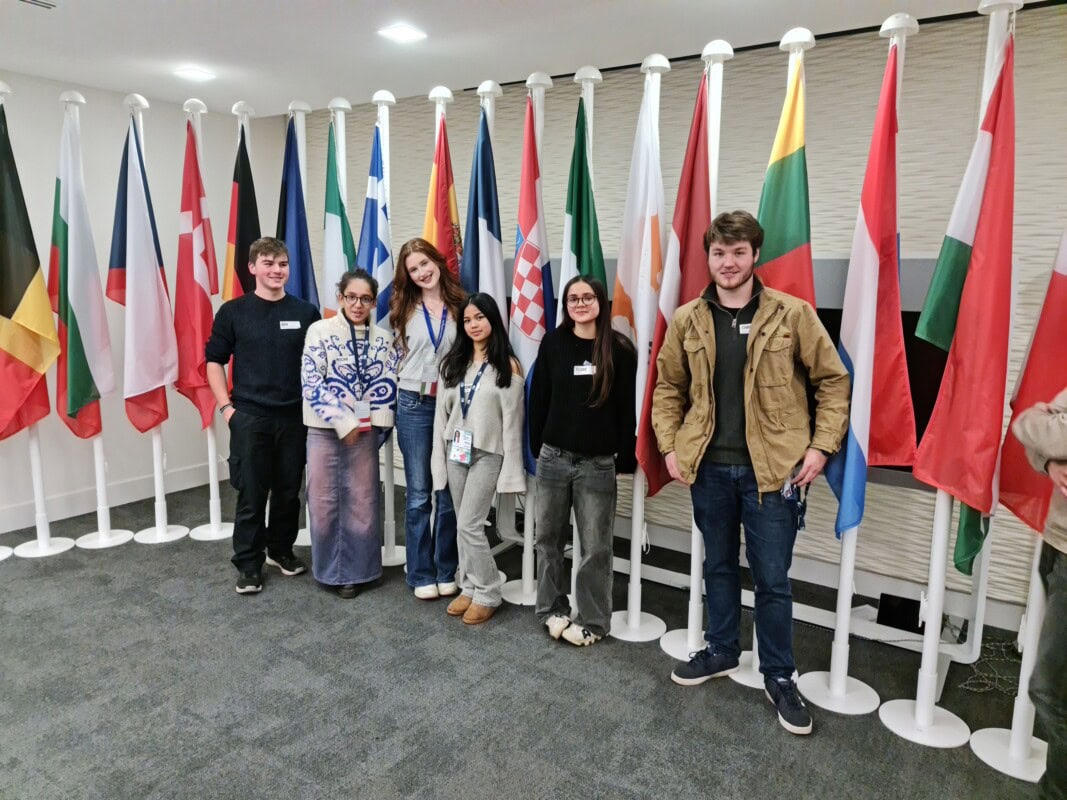
Students attend NATO talk – a tool of American domination or collective security?
In November, we welcomed Dr Suzanne Doyle, lecturer in international relations at the University of East Anglia for an informing analysis surrounding the history of NATO, its evolution and how the organisation may continue to play an influential role whilst facing future challenges.
6.2 Politics student, Max H, reports.
When discussing the history of NATO, Dr Doyle gave a detailed and clear explanation of NATO’s formation in 1949. In addition, her analysis of the history of NATO through the lens of the Cold War helped to exemplify why the organisation was formed, which was to maintain stability in Europe after WW2.
Dr Doyle also discussed the expansion of NATO since the fall of the Soviet Union and how, in the view of some academics, this has led to greater security and protection whilst others blame NATO expansion into Eastern Europe as a root cause for a renewed security dilemma and the War in Ukraine.
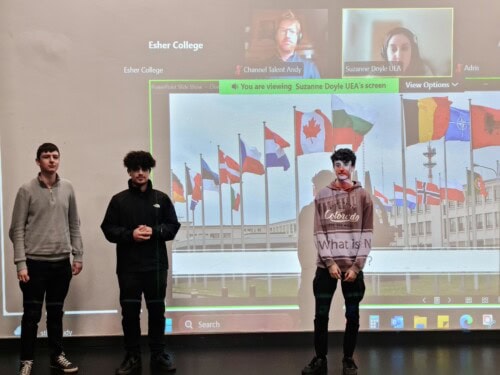
Politics student Baxter R. described the talk as a rare insight into one of the most consequential organisations of our generation.
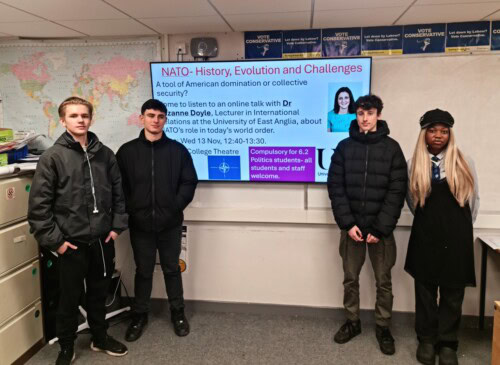
Europe House Workshop on EU/Regional Integration
Politics students visited Europe House this term, the UK representation of the European Parliament and the EU Commission. They learned why it was created, how it works, and why it still matters today, despite Brexit!
6.1 Politics students, Oliver S. and Harry R, report.
We talked about its history, including its founding after World War II to promote peace and cooperation, and discussed whether it has lived up to its purpose.
We enjoyed a bingo style game, learning interesting facts about the different member states. We explored things like population, languages, and what makes each country unique. Later, we discussed the big issues the European Parliament deals with such as climate change, the economy, and youth mobility.
After that, we split into five groups, each representing different political groups in the European Parliament. We debated major issues like trade, human rights, and migration, presenting our ideas as if we were real MEPs (Members of the European Parliament).
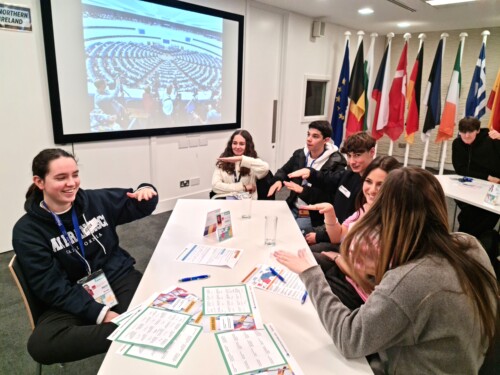
The whole experience gave us a much better understanding of how the EU works and what its institutions, like the European Parliament and the European Commission, actually do.
